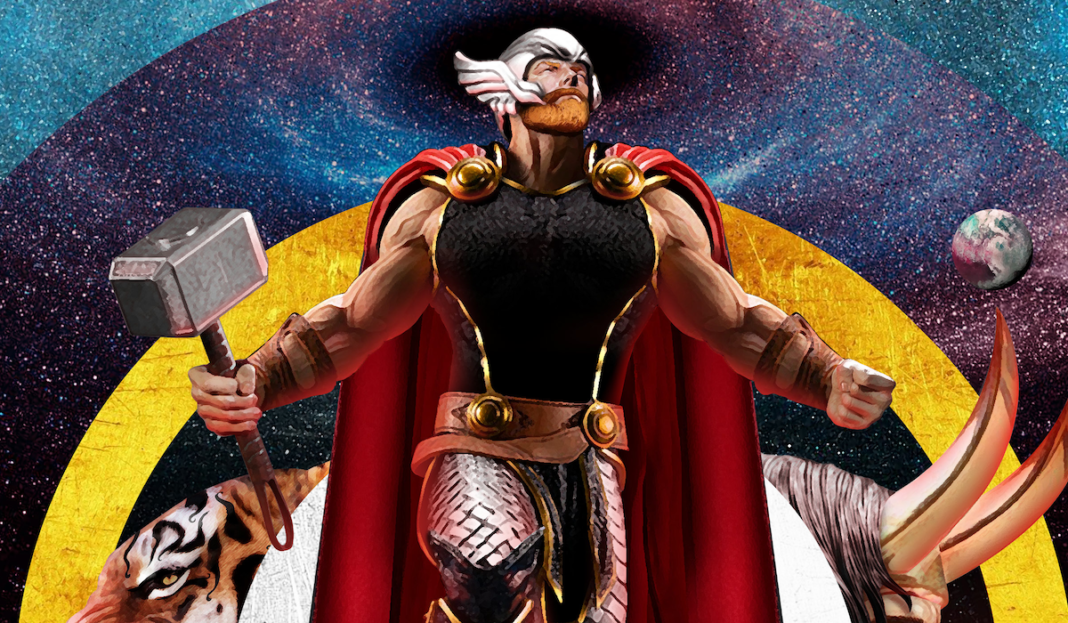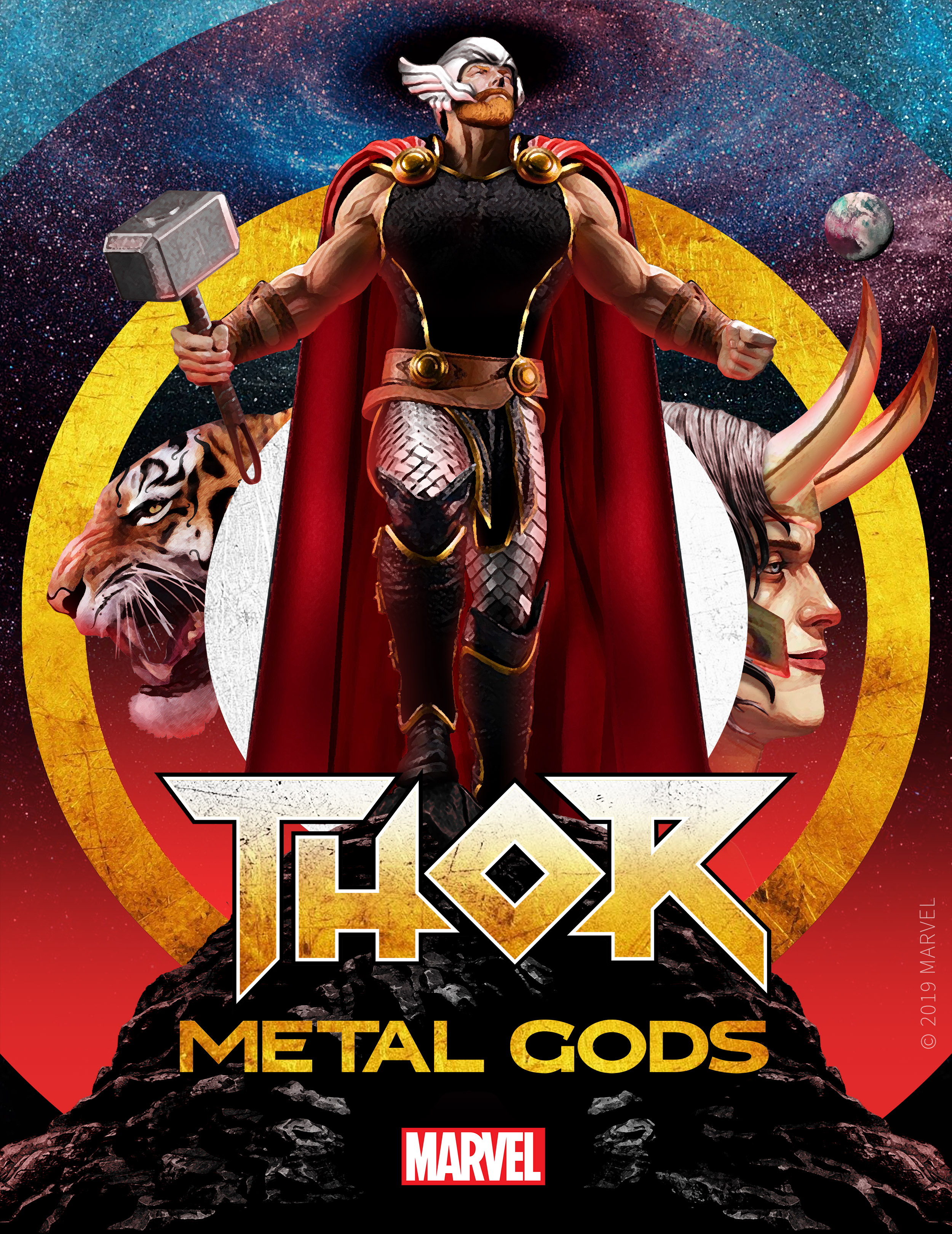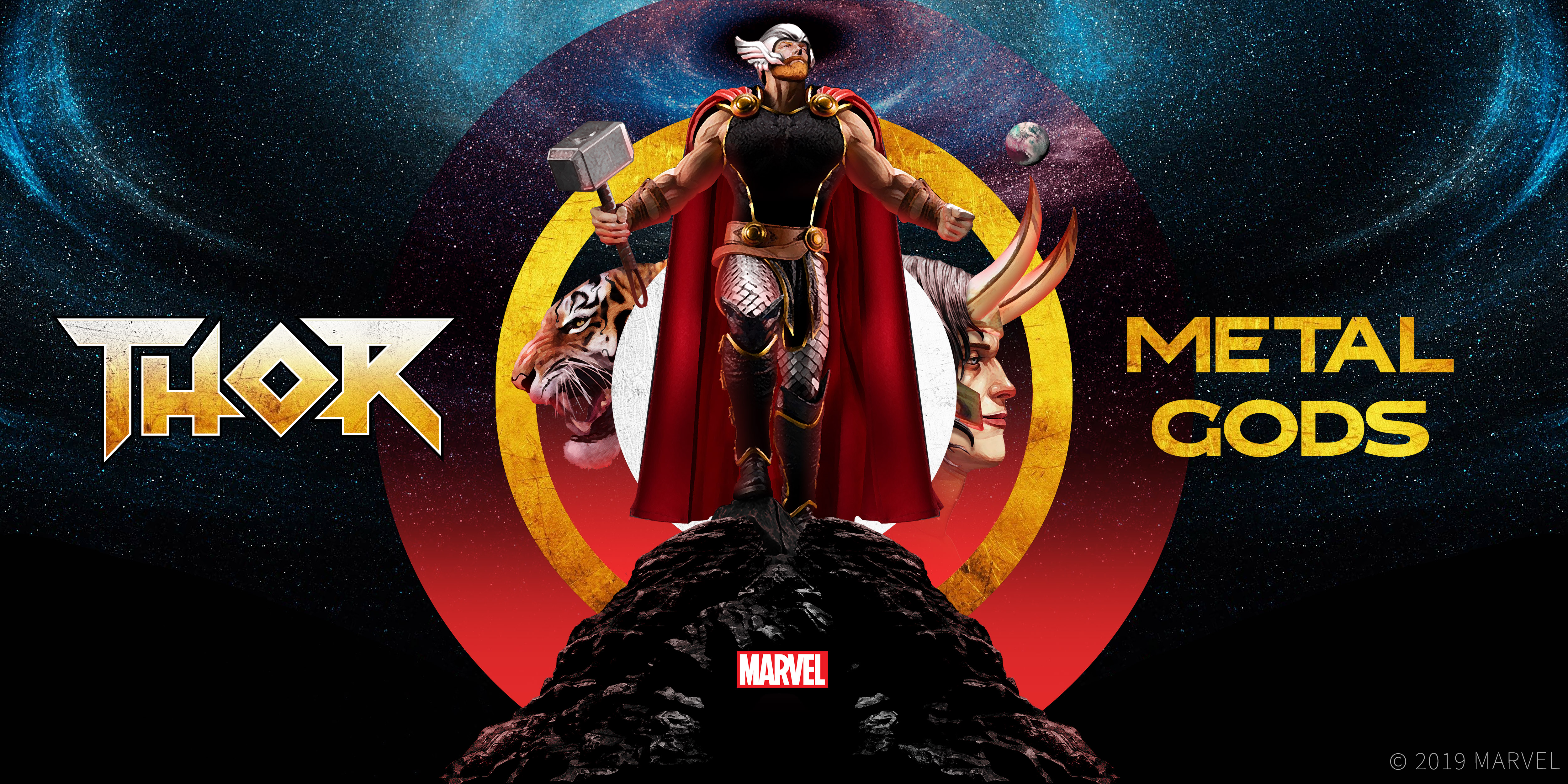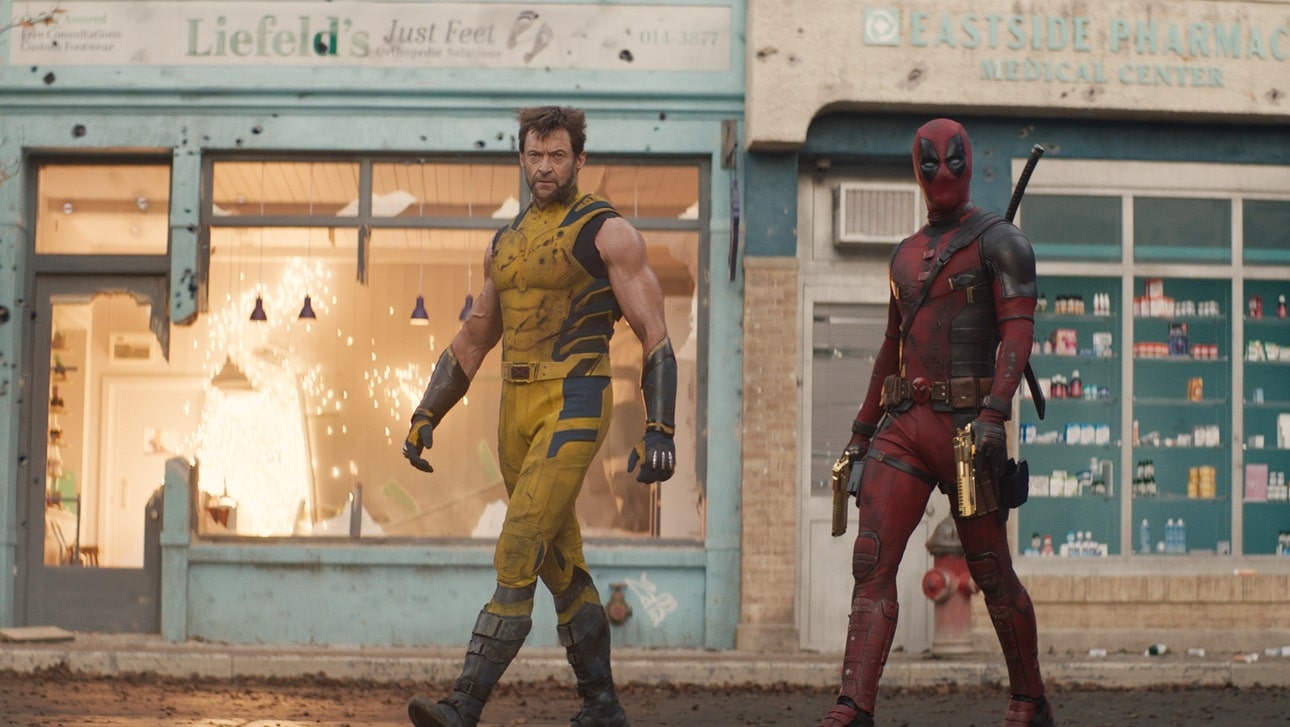Thor’s latest adventure has arrived! In Marvel’s Thor: Metal Gods, Thor and his brother Loki join forces with Horangi, the Scarlet Tiger of Korea, and Zia, a cosmic pirate, as they face the consequences of the decisions the Asgardian brothers made in the past.
Marvel’s Thor: Metal Gods, which is now available for listening and reading through Serial Box, was written by Aaron Stewart-Ahn, Brian Keene, Yoon Ha Lee, and Jay Edidin, and the Beat caught up with Jay to ask him all about this exciting new chapter in Thor’s adventures.
AVERY KAPLAN: What was the writing process like? Did you read the first three chapters before writing chapter four?
JAY EDIDIN: Serial Box basically works on a TV writer’s room model, so we met up for a few days, hammered out the details of the plot… Working from Aaron’s original outline, and then basically split up and independently wrote the first four chapters. So we didn’t have those when we were working on them initially, but everywhere from the first draft on we did, and we were in pretty continually contact.
KAPLAN: What was the process of adapting a visual medium like comics to audio?
EDIDIN: Well, it’s not exactly audio – I think people are hearing about it and thinking it’s an audio serial. It’s much more of an audiobook, it’s a novel, it’s read, it’s not performed in the same way that an audio drama would be. A lot of it is basically just a matter of finding the descriptive language that matches the visual.
It’s a lot of fun with Thor, because of the world we’re writing, the characters’ points of view we were writing, we got to be a lot more dramatic and purple in narration and exposition than we might have with more Earth-bound characters and ones that were less by definition exaggerated and epic, so that was pretty cool to get to do.
KAPLAN: Were there any incarnations of Thor and Loki – comics, film, or mythology – that were particularly influential for your interpretation of the characters?
EDIDIN: I mean, we had an eye to the film ones just because when you’re looking at people coming in as an audience now, they’re going to be more coming in familiar with the films than the comics… Even if you read substantially in the comics, I think the films are significant.
I also think Taika Waititi’s grasp on Thor as a character, and that character’s voice, is one that I would put among my favorites, along with the comics artists who are my go-tos, who tend to be Walter Simonson and Jason Aaron. And I mean, I feel like anyone who’s writing Thor is going to answer Simonson to that question because, really, there’s never been a more definitive writer or artist, in terms of shaping the character’s voice and in terms of guiding the tone of the series.
KAPLAN: Music is essential to every chapter of Marvel’s Thor: Metal Gods. Did a particular artist or experience inform your interpretation of Lila Cheney?
EDIDIN: For me, Lila Cheney is always going to be the steal-this-planet, Lila Cheney. She’s a character whose look and whose characterization has changed a little bit over the years, but for the most part… I feel like what’s essential to Lila Cheney and what’s common to a lot of her best stories is that there’s always the vague impression that there’s another story somewhere else of which she’s the protagonist that just happens to be sort of passing through the one that you’re telling.
KAPLAN: What’s your regular creative routine (if you have one)?
EDIDIN: I don’t right now, very very shortly after starting work on this I actually got a day job for the first time in a very long time, and that’s sort of thrown a lot of previous routines into … I’m still sort of re-establishing those.
Yeah, it’s very a lot. Making time and making dedicated blocks of time to write in the ways that I need to is challenging.
KAPLAN: Was there any character you particularly enjoyed writing for this project?
EDIDIN: Well, Lila is sort of an obvious one. Thor and Loki are both tremendous, tremendous fun to write, especially together, because they’re both very interesting characters. They both present themselves to the world and to each other in ways that are not entirely reflective of what they see and experience… There’s a lot of performance involved for both of them. So being able to really play with that contrast is a lot of fun. They’re also fun to write together because so much of their dynamic is influenced by sort of tradition and rhythm and what have become kind of ritual squabbles between them.
And Thor especially, I like writing Thor a little more than I actually anticipated. He’s always been a character I liked but never one particularly was interested in writing, and he turned out to be one of my favorites.
KAPLAN: I don’t want to spoil anything, but Marvel’s Thor: Metal Gods is filled with references to the Marvel Universe. Is there any reference you were especially excited to include?
EDIDIN: I love cosmic Marvel, and there’s a specific corner of cosmic Marvel that I really love. By virtue of having Lila in there, I had the opportunity to drop in a lot of tiny cameo references to other stuff I love, including the Starjammers. That doesn’t really spoil anything, it’s not a significant plot point, it’s just sort of dropped in a bit of conversation.
KAPLAN: Is there any comic, music, or on-screen entertainment that you have been particularly enjoying lately?
EDIDIN: Oh, gosh… What have I actually been doing? I just finished reading a novel, The Bird King by G. Willow Wilson, which I started and just sort of put off as I got to the last chapter because I didn’t want it to end. Willow’s known as a comic book writer, and she is a phenomenal novelist. The Bird King I think is her second novel, and the first one is excellent, and the extent to which this one is better has been so exciting. It’s just such a good book.
KAPLAN: Is there anything else you’d like to share about Marvel’s Thor: Metal Gods?
EDIDIN: I think something that was really tremendous and that differentiates Serial Box from a lot of the novels that are out there in terms of superhero stuff and comics is that writer’s room format. Being able to work with three other writers, all of whom come from very, very different backgrounds, culturally and as writers, and artistically, was really tremendous. It’s rare to get the kind of collaborative dynamic that we got in there on a book because there’s so rarely such direct collaboration going on.
Season one of Marvel’s Thor: Metal Gods is available for listening and reading on Serial Box beginning today.









